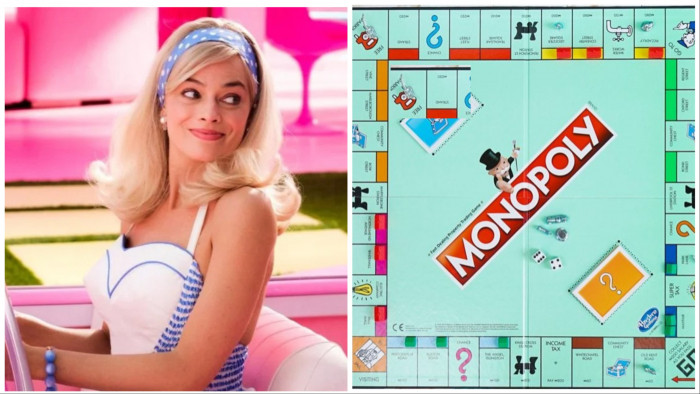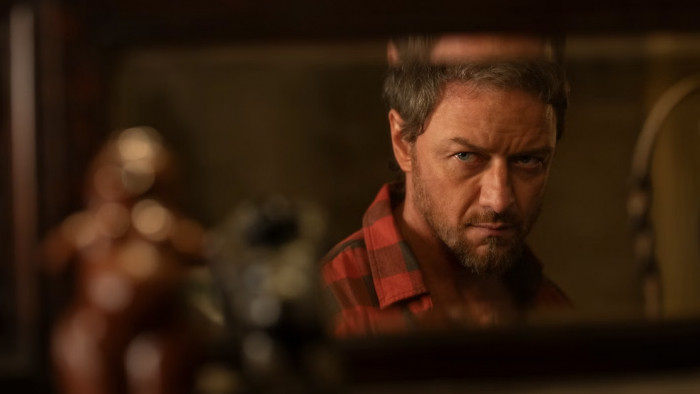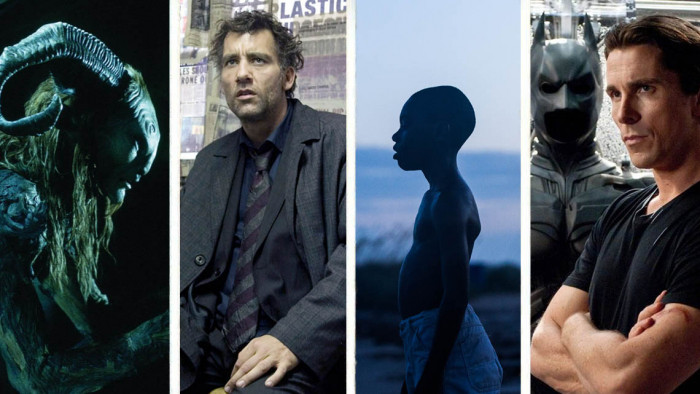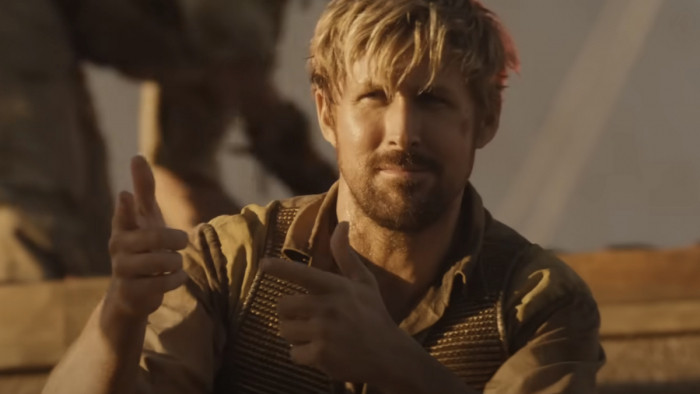Meet the music legend behind Alice Cooper (and Luther Vandross) who sold drugs to Jimi Hendrix, was punched by Janis Joplin, drank yak tea with the Dalai Lama, shared a cat with Cary Grant and is the subject of a new film by Mike Myers…Shep Gordon says hello to ShortList’s Louise Donovan
If I was managing him, I would never have picked a documentary,” says Shep Gordon, his Hawaiian shirt brightening up the Manhattan hotel suite we’re sat in. He’s referring to Mike Myers, distractedly unwrapping a Reese’s Peanut Butter Cup by his side, and the Canadian actor’s decision to make his directorial debut with a film based on Gordon’s scandalous Hollywood life. For once, the super-manager behind Alice Cooper, Pink Floyd and Luther Vandross was wrong and, as you’d expect after 23 years of friendship, Myers didn’t take a blind bit of notice of Gordon’s protestations: “Shep is fascinating and fascinated. He’s the most famous person to famous people”.
According to Myers, this makes him a worthy subject. The Austin Powers star took a two-year hiatus to direct Supermensch: The Legend Of Shep Gordon, a mix of archive footage, interviews and reenactments tracing Gordon’s life. And the very funny film shows it’s more than his skill as a talent agent that makes Gordon special. It’s his kindness in a cutthroat profession: “If you ask anybody in show business, ‘Who is the nicest person?’ They’ll say Shep,” says Myers. “How nice he is, versus the crazy things he’s done is a fascinating discrepancy.”
Shep’s World
However, niceties aside, Gordon has long been a notorious figure. He was the PR-savvy man behind the outlandish stunts that propelled Alice Cooper to rock-stardom. When Cooper’s first Wembley Arena gig failed to sell, Gordon staged the breakdown of a truck covered in a huge naked photo of the singer in London’s Piccadilly Circus, causing havoc. Sure enough, the gig sold out. Then there was the ‘Chicken Incident’ of 1969. During a concert in Toronto, Gordon hurled a chicken on stage and Cooper, thinking it could fly, threw it into the crowd. They ripped it to shreds, cementing the singer’s reputation as a bird-sacrificing mad man.
Sure, he tested the limits of decency. But the level of thought at play – ie when wrapping copies of Cooper’s School’s Out LP in paper knickers – reveals how serious Shep was about these attention-grabbing pranks.
“I’d read a newspaper article about flammable panties from Europe being confiscated [in the US] and thought: ‘I’ve got to use that’,” he explains. “I never told Warner Bros, but I bought legal, non-flammable panties [for the album], which were made in Canada. I also bought 3,000 pairs of flammable panties from Europe, flown through Washington, as there was a journalist I knew there. Customs got a tip from someone, I can’t imagine who, that these panties were coming in. The front page of the Washington Post read: ‘Largest pantie raid in history.’”
Was there a line he wouldn’t have crossed? “No,” say Gordon and Myers simultaneously, before bursting into raucous laughter. This connection is a sure sign of a friendship that was born back on the set of Wayne’s World in 1991. Myers wanted Alice Cooper to sing School’s Out, but Gordon persuaded him to use a song off Cooper’s new album, Feed My Frankenstein. “Shep said, ‘I happen to know you start [filming] in two weeks and don’t have a choice’,” recalls Myers, amid more chuckling. It’s telling, and sweet, that they still find this story amusing, when it’s certainly not its first outing. Which makes it all the more difficult to believe theirs wasn’t a love at first sight.
“He comes in, he’s bald but has a pony tail, it’s grey, he’s wearing a satin tour jacket. I thought it was something out of Spinal Tap,” recalls Myers. “I was like, ‘I’m gonna hate this dude.’” Yet they became firm friends, and Myers often crashes at Gordon’s Maui mansion.
Hazy Days
But everybody, it seems, fell under the supermensch’s spell. After a failed career as a probation officer landed him at the Los Angeles Hotel, he met Jimi Hendrix, who suggested he represent Alice Cooper. Managing was a front to cover his drug-dealing business, but Gordon soon transformed into a savvy silk-suit wearing mogul. He also made a few friends along the way – Tom Arnold, Michael Douglas, Mick Fleetwood, Emeril Lagasse and Sylvester Stallone share their tales in the film.
And these stories are rub-your-eyes ridiculous. Punched in the face by Janis Joplin? Sure. Shared custody of his cat with next-door neighbour Cary Grant? Of course. Nine-day stint as Pink Floyd’s manager before the club he booked burnt down? Oh yes. Can every story be true? “I lived in an era where there were lots of psychedelics and things that fog your memory,” he admits. “There are certain things I know for sure because there’s pictures. And the photos didn’t take drugs.”
So that’s a no, then?
“[Laughs] One of my favourite moments in the movie is when I talk about meeting Pablo Picasso. Mike called me and said, ‘There’s something wrong – on that day Picasso had been dead for two years’. So in the movie he stops the action, puts a card up and says, ‘Not true. Pablo Picasso was dead, Shep was very high’,” Gordon laughs. “That’s an honest reflection of those days. Alice has a line, ‘I never let the truth or my memory get in the way of a good story’.”
Tabloid Tales
If his tales veer towards the fantastical, Gordon’s concern for his clients was very real. He explains his two most effective tactics to get his artists noticed. One was women-only concerts for Teddy Pendergrass, with chocolate teddy lollipops (“for the girls to lick on”) and underwear to throw on stage (“I guess I’m into panties”). But Luther Vandross was tricky. “He didn’t want to change history, which made my job tough because that’s what I know how to do,” he explains. “I came up with the idea of having radio stations run contests to get married on air with Luther singing the wedding song live, which worked because it completely defined him. With Teddy I was looking for sex, with Luther I was looking for romance.”
You can see Gordon’s cunning in the careers of current pop stars. As producer Bob Erzin notes in Supermensch, “Shep wrote the book and everybody’s reading from it.” He capitalised on tabloid sensationalism, paving the way for a new subculture: shock rock. Would Miley Cyrus be swinging semi-naked from a wrecking ball if Gordon hadn’t sent a chicken to its death on stage? Probably not. He’s aware of his influence, but happy on the sidelines: “With Alice, if we could get parents to hate it, kids would love it. That goes beyond any individual artist. I love the techniques Miley and Justin Bieber use. But I wouldn’t want to be involved because I’m part of the older generation that doesn’t get it, and that’s what makes it powerful.”
So did he ever miss out on an act? “I’ve only pursued one client in my life and that was Jamie Oliver,” says Gordon. “I flew Alice over to be with me in the meeting to impress him, but it didn’t work.” Still, the man who has the Dalai Lama on speed dial isn’t fussed. “I’ve been blessed, I’ve lived a Forrest Gump life,” he says. “You’ve lived 15,000 lives,” adds Myers. He’s not kidding.
Supermensch: The Legend Of Shep Gordon is at selected cinemas from 18 July
(Images: Getty/Dogwoof)
Latest
Related Reviews and Shortlists










